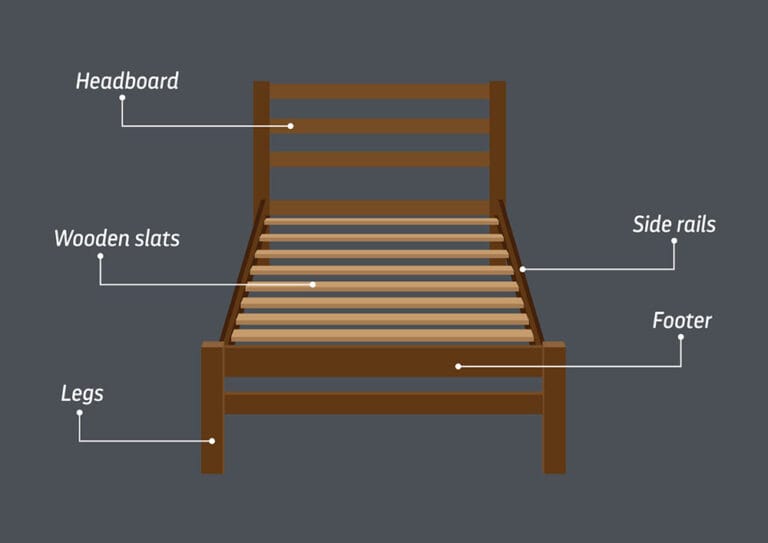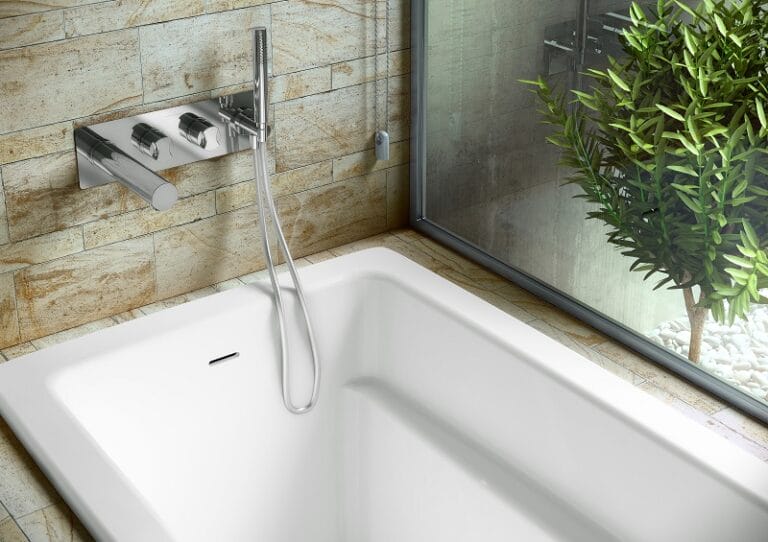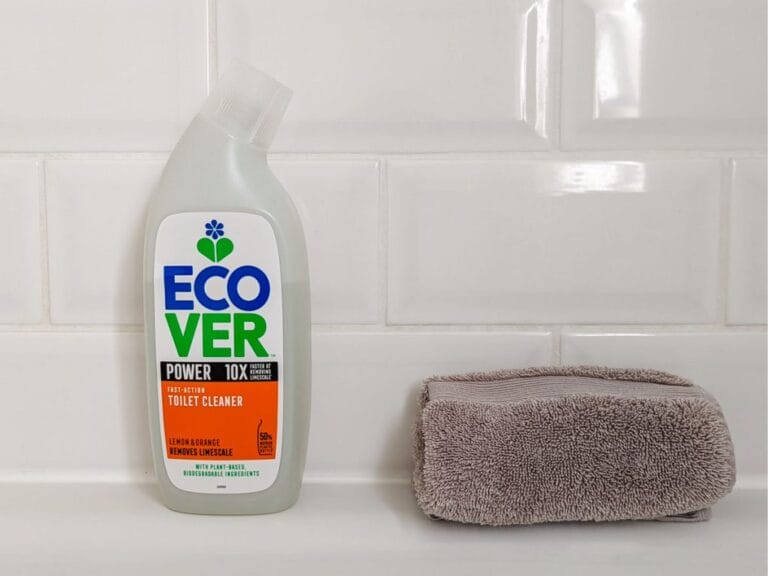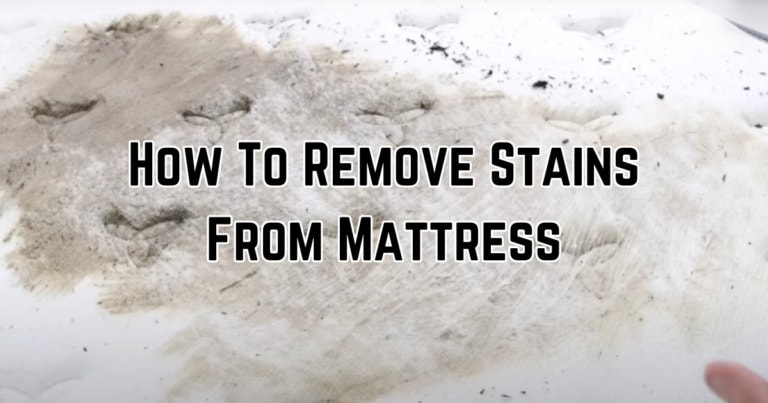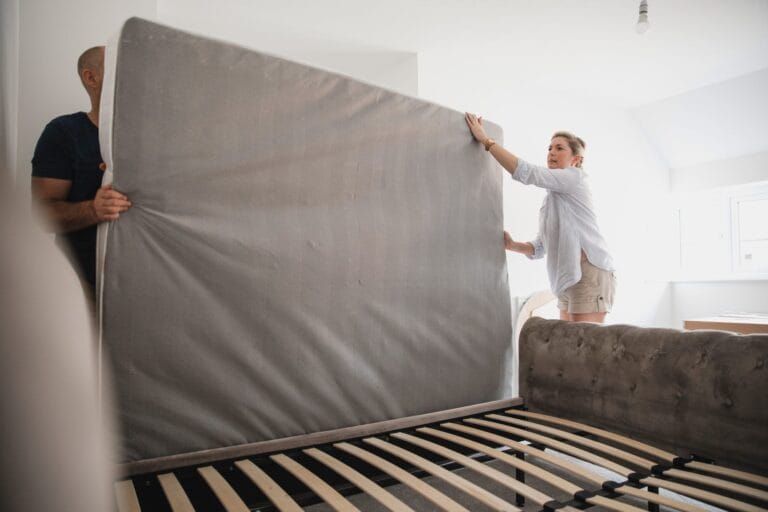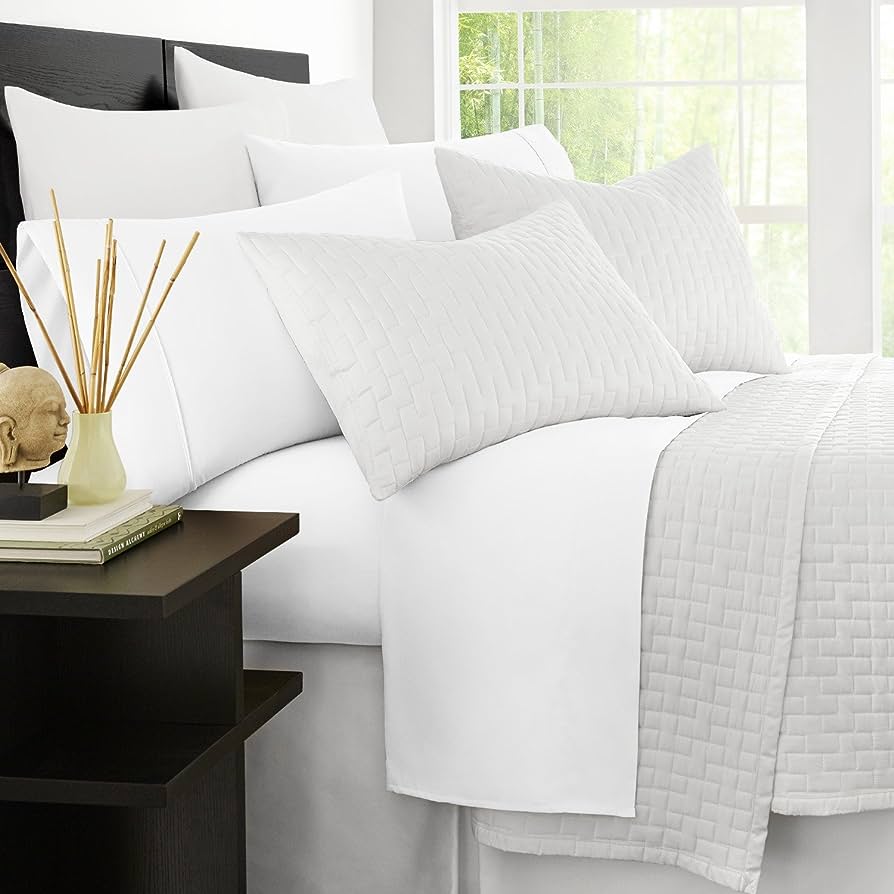
Are you curious about bamboo bed sheets and their impact on the environment? Well, let’s dive into the question: Are Bamboo Bed Sheets Eco-friendly?
Bamboo bed sheets have gained popularity in recent years, not only for their luxurious feel but also for their environmental benefits. So, are bamboo bed sheets really as eco-friendly as they claim to be?
Many people think that using bamboo for bed sheets is a sustainable choice, as bamboo is known for its rapid growth and ability to thrive without the need for pesticides or fertilizers.
This makes bamboo a renewable resource that can be harvested without causing harm to the environment. But, there’s more to the story!
When it comes to processing bamboo into bed sheets, the method used plays a crucial role in determining their eco-friendliness.
Stay tuned as we explore the different types of bamboo fabric and their environmental impact. It’s time to uncover the truth about bamboo bed sheets!
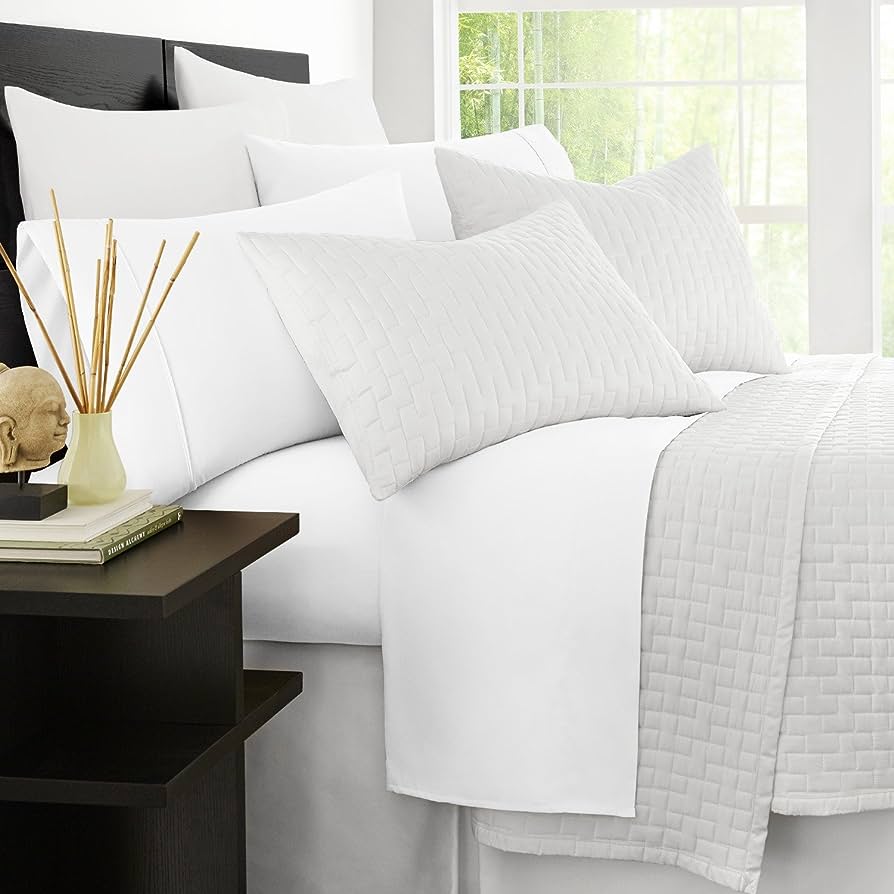
Are Bamboo Bed Sheets Eco-friendly?
Bamboo bed sheets are a popular choice for eco-conscious consumers. Made from sustainable bamboo fibers, these sheets offer several eco-friendly benefits.
Firstly, bamboo is a fast-growing plant that requires no pesticides or fertilizers. Secondly, bamboo fabric is naturally hypoallergenic and resistant to bacteria, reducing the need for harsh chemical treatments.
Lastly, the production process of bamboo sheets is more sustainable compared to conventional cotton sheets, which require excessive water and energy. By choosing bamboo bed sheets, you can sleep comfortably knowing you’re making an environmentally friendly choice.
Production Process of Bamboo Bed Sheets
When it comes to determining the eco-friendliness of bamboo bed sheets, it is crucial to understand their production process. Bamboo fibers can be processed using two methods: the mechanical process and the chemical process.
In the mechanical process, the bamboo stalks are crushed and undergo a natural retting and combing process. This method creates a soft material that is often referred to as “bamboo linen.” The mechanical process is deemed more eco-friendly as it does not involve the use of chemicals, making it a more sustainable choice.
On the other hand, the chemical process involves treating the bamboo fibers with chemicals such as sodium hydroxide and carbon disulfide to extract and dissolve the cellulose. This produced cellulose is then spun into fibers to create the fabric.
While this process results in softer and more pliable bamboo fabric, it raises environmental concerns due to the chemicals used.
Sustainability of Bamboo
One of the key factors to consider when determining the eco-friendliness of bamboo bed sheets is the sustainability of bamboo as a resource. Bamboo is a highly sustainable plant due to its rapid growth rate and low demand for resources.
It can reach maturity in just a few years and requires minimal water and pesticides compared to traditional crops like cotton. Additionally, bamboo roots help prevent soil erosion, and its dense growth aids in carbon absorption, making it a beneficial plant for the environment.
Another positive aspect of bamboo is its ability to regrow after harvesting. Unlike other plants that require replanting, bamboo naturally regenerates, avoiding deforestation and habitat destruction. These characteristics contribute to bamboo’s reputation as an environmentally friendly material.
The Benefits of Bamboo Bed Sheets
Apart from their potential eco-friendliness, bamboo bed sheets offer several benefits for consumers.
1. Softness and Comfort: Bamboo fibers are naturally smooth and soft, providing a luxurious feel against the skin. The fabric’s breathability and moisture-wicking properties contribute to a cool and comfortable sleep.
2. Hypoallergenic: Bamboo bed sheets are often hypoallergenic and suitable for sensitive skin. The natural properties of bamboo fibers make them resistant to dust mites and mold, reducing allergens in your sleep environment.
3. Temperature Regulation: Bamboo fabrics have excellent temperature-regulating properties, making them suitable for all seasons. They help keep you cool in summer by wicking away moisture and providing insulation during colder months.
4. Sustainability: As mentioned earlier, bamboo is a highly sustainable resource, and choosing bamboo bed sheets can contribute to reducing your carbon footprint.
The potential benefits and eco-friendliness of bamboo bed sheets make them an appealing choice for conscious consumers. However, it is essential to consider other factors such as the manufacturing process, certifications, and transparency of the brand before making a purchase.
Are Bamboo Bed Sheets Certified and Transparent?
When evaluating the eco-friendliness of bamboo bed sheets, it is crucial to look for certifications and transparency from the brand.
Look for certifications like the OEKO-TEX Standard 100, which ensures that the fabric does not contain harmful substances. Additionally, certifications such as the Global Organic Textile Standard (GOTS) guarantee that the material is sustainably produced.
Transparency plays a significant role in determining a brand’s eco-friendly practices. Look for brands that provide information about their sourcing, manufacturing process, and their commitment to sustainability. Some brands may even disclose their carbon footprint and initiatives taken to reduce environmental impact.
By choosing certified and transparent brands, you can ensure that your bamboo bed sheets are genuinely eco-friendly and contribute to the preservation of the environment.
Tips for Caring for Bamboo Bed Sheets
To maximize the lifespan of your bamboo bed sheets and maintain their eco-friendly properties, it is essential to follow proper care instructions. Here are some tips:
1. Washing: Machine wash your bamboo bed sheets in cold water with a gentle detergent. Avoid using bleach or fabric softeners as they can damage the fabric.
2. Drying: Line drying is the most eco-friendly option, but you can also tumble dry on low heat. Avoid exposing the bamboo fabric to direct sunlight as it can cause fading.
3. Ironing: If necessary, iron your bamboo bed sheets on the lowest heat setting to avoid damaging the fibers.
4. Storage: Store your bamboo bed sheets in a cool, dry place to prevent mold or mildew growth.
By following these care tips, you can prolong the lifespan of your bamboo bed sheets and reduce the need for frequent replacements, further reducing your environmental impact.
Bamboo bed sheets have the potential to be eco-friendly due to bamboo’s rapid growth, minimal resource requirements, and regenerative properties.
However, it is essential to consider the production process, certifications, transparency of the brand, and proper care to ensure a genuinely eco-friendly choice.
By making informed decisions, you can enjoy the comfort of bamboo bed sheets while minimizing your environmental footprint.
Frequently Asked Questions
Welcome to our FAQ section where we answer commonly asked questions about bamboo bed sheets and their eco-friendliness. Read on to learn more about these sustainable bedding options.
1. How are bamboo bed sheets eco-friendly?
Bamboo bed sheets are considered eco-friendly for several reasons. First, bamboo is a highly sustainable resource as it is one of the fastest-growing plants on Earth.
It can be harvested annually without causing significant damage to the environment. Additionally, bamboo requires very little water compared to other crops, reducing water consumption and preserving this vital resource.
Furthermore, bamboo is naturally pest-resistant, eliminating the need for harmful pesticides and insecticides. The manufacturing process of bamboo bed sheets also tends to be more environmentally friendly compared to traditional cotton production, as it typically requires less water, energy, and chemicals.
2. Do bamboo bed sheets have any other benefits besides being eco-friendly?
Absolutely! Bamboo bed sheets have a range of additional benefits besides their eco-friendliness. One notable advantage is their exceptional breathability.
Bamboo fibers naturally wick away moisture, keeping you cool and comfortable throughout the night. This makes bamboo bed sheets an excellent choice for hot sleepers or anyone living in a warm climate.
Another great feature of bamboo bed sheets is their softness. They have a luxurious feel, often described as silky and smooth. Bamboo fibers are also naturally hypoallergenic, making them an excellent option for those with sensitive skin or allergies. Lastly, bamboo bed sheets have excellent durability and can withstand frequent washing, ensuring they last for a long time.
3. Are all bamboo bed sheets eco-friendly?
While bamboo itself is a sustainable resource, it’s essential to note that not all bamboo bed sheets are eco-friendly. Some manufacturers use chemical processes to convert bamboo into fabric, which can have a negative impact on the environment.
To ensure you’re purchasing eco-friendly bamboo bed sheets, look for certifications such as Oeko-Tex Standard 100 or Global Organic Textile Standard (GOTS). These certifications ensure that the bamboo bed sheets are made using environmentally friendly processes and materials.
Additionally, it’s important to consider the entire lifecycle of the product. Look for brands that prioritize ethical and sustainable practices throughout the manufacturing and supply chain. This includes factors such as fair labor practices and minimal packaging waste.
4. Can bamboo bed sheets be recycled?
Yes, bamboo bed sheets can be recycled, making them even more eco-friendly. When it’s time to replace your bamboo bed sheets, rather than throwing them in the trash, consider recycling them.
Check with your local recycling facilities to see if they accept textile recycling. If not, consider repurposing the bed sheets for other household uses or donating them to local charities.
Recycling bamboo bed sheets helps reduce waste and conserve resources. By giving your old bed sheets a new life, you contribute to the circular economy and help create a more sustainable future.
5. Are bamboo bed sheets suitable for all skin types?
Yes, bamboo bed sheets are suitable for all skin types. The soft and smooth texture of bamboo fibers makes them gentle on the skin, reducing the risk of irritation or discomfort. Bamboo bed sheets are also naturally hypoallergenic, making them an excellent choice for those with sensitive skin or allergies.
Furthermore, bamboo fibers are highly breathable and moisture-wicking, which can help regulate body temperature and keep the skin dry. This makes bamboo bed sheets an excellent option for those prone to sweating or experiencing hot flashes. Whether you have dry skin, oily skin, or anything in between, bamboo bed sheets can provide a comfortable and soothing sleep experience.
Bamboo bed sheets are eco-friendly because bamboo plants grow quickly and don’t require pesticides. They are soft, breathable, and naturally antimicrobial, making them great for sensitive skin.
However, some bamboo bed sheets may go through a chemically-intensive manufacturing process, which can reduce their eco-friendliness. To ensure sustainability, look for certifications like Oeko-Tex or FSC that guarantee responsible production practices.
In conclusion, bamboo bed sheets are a good choice for the environment. They are sustainable and offer comfort and health benefits. Just make sure to check for certifications to ensure that the production process is also eco-friendly. Sleep soundly and make a positive impact!

